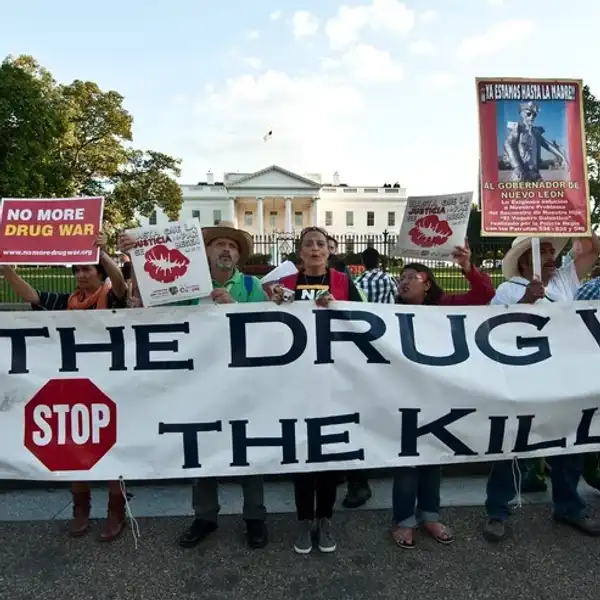In 2003, Joaquín Guzmán rose to power as the most powerful drug kingpin in the country. He headed the Sinaloa cartel, which was responsible for 25% of the drugs illegally entering the U.S. from Mexico. Widely regarded as the "biggest drug lord ever," it's no surprise that Guzmán was wanted by the governments of Mexico and the United States, as well as INTERPOL. Then two years ago, on February 22, 2014, Guzmán was found and captured in his home by Mexican police. He was sent to a maximum security prison, Antiplano, sentenced to spend much of the remainder of his life in a tiny jail cell.
However, this past June, Guzmán escaped by digging a tunnel from under his shower stall. Antiplano was famous for being impenetrable and inescapable, with multiple measures to block any ability for any outside communications to come in; detect traces of metal, drugs, and explosives; and much more. Guzmán's escape humiliated Mexican authorities, particularly because of the likelihood that Guzmán may have likely bribed prison guards to aid his escape.
Guzmán also represents tension between the United States' and Mexico's governments. As Mexican drug cartels gain more and more influence in the U.S., Mexico's law enforcement bears more and more pressure to keep Guzmán (and other kingpins) locked away. Unfortunately, due to a long history and current culture of political corruption (particularly in conjunction with the cartels), the U.S. doesn't necessarily have the utmost faith in Mexico's government to successfully apprehend criminals like Guzmán. His escape in 2014 added strain to the two countries' relationship because it made the Mexican government seem either incapable or irresistibly prone to corruption.
But on January 9, Mexican authorities tracked down and arrested Guzmán in his coastal home in the region of Sinaloa, where the cartel is based. This was an enormous success for the Mexican government, since they received no help from American forces for Guzmán's arrest on Friday. This isn't to say that the U.S. never offered to help, but rather that Mexico was able to show capability and success in their operations.
What led Mexican marines to Guzmán's door, however, was not deep undercover work spanning decades of dedication, or hundreds of associates wearing wires... It was Guzmán's desire for a shot at the silver screen. Guzmán wanted a biographical movie to be made about his life, leading him to talks with various producers and actors. That opened up new lines of investigation, which, in conjunction with other contacts, ultimately helped the authorities discover his location.
While there is some discussion on whether or not Guzmán will be extradited to the U.S., for the time being, he will be returning to Antiplano. People are unsure about putting Guzmán in the same prison he escaped from, but his new cell will likely have more security and be on a higher floor than his previous one.
Whatever the case is, Guzmán's arrest comes as a huge relief for Mexico, the United States, and many other countries that suffer from the heavy influence of one of the most powerful drug kingpins the world has ever seen.





















